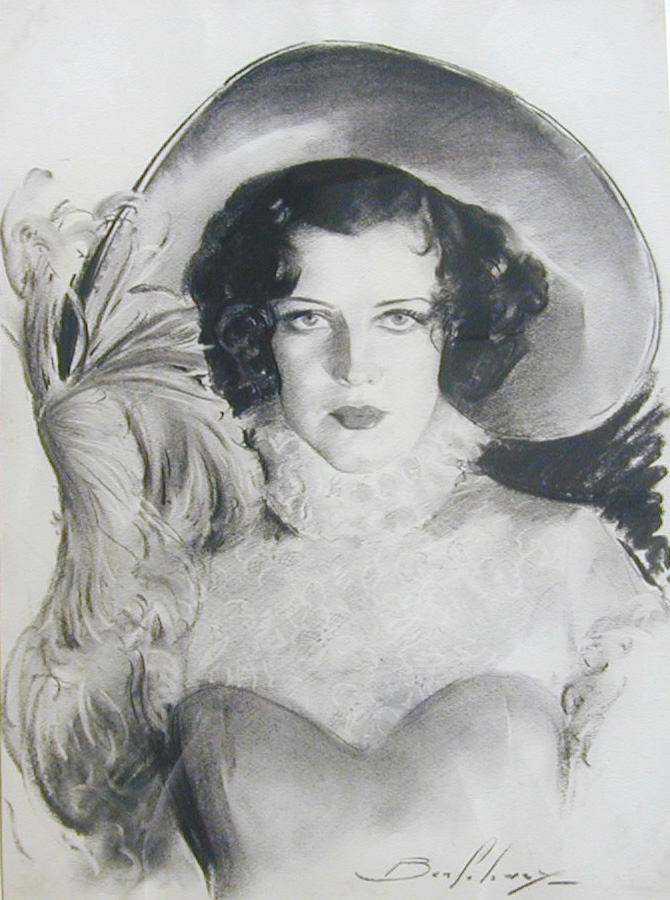
On the east side of Broadway between 50th and 51st Street stands the Winter Garden Theatre, the home of many theater milestones: West Side Story, Funny Girl, Mame, and the longest running musical in Broadway history, Cats. Currently it houses the jukebox musical, Mamma Mia!
The property first entered the history books as the American Horse Exchange in 1885. The Times Square area was known as Longacre Square then and dominated by the stables and horse dealers. By 1910, with horse and buggy trade on the decline, the property was leased to the Shuberts, who hired architect William Albert Swasey to design a theatre that suggested an English garden. In addition to lattice work walls and a trellised ceiling, Swasey also installed a “runway,†a ramp over the orchestra that led to the rear of the theater, that was perhaps the most remarked upon feature of the building.
The Winter Garden’s first production in 1911 was La Belle Paree, a Jerome Kern musical, with interpolations by Irving Berlin, but the night is remembered as the first of Al Jolson’s many classic Winter Garden appearances. Over the next two decades it was also the home of The Passing Show, a annual revue that was the Shuberts’ answer to Ziegfeld’s Follies.
But by 1927, Jolson had an even greater effect on the theater. His performance in the first “talkie,†The Jazz Singer ushered in the era of the movies, and the subsequent decline of the legitimate stage. Warner Brothers, which had produced the film, eventually leased the Winter Garden and converted it to a movie house, the fate of many great theaters at the time.
Despite the Depression, the Winter Garden regained its legitimacy when, in September 1933, it reopened with, ironically, Hold Your Horses, a frothy musical comedy with music by, among others, Russell Bennett, who would soon become on one of the great Broadway orchestrators. The book was by Russell Crouse (who the following year would team up with Howard Lindsay for the first time for the book of Cole Porter’s Anything Goes) and humorist Corey Ford.
The lead of the musical comedy set in New York City at the turn of the century was comic and juggler Joe Cook, a man who once took the stage to explain why he would not be able to imitate five Hawaiians playing a ukulele. In the cast of nearly one hundred was Ziegfeld Follies star, Frances Upton. A vivacious beauty who could sing and dance, she had first appeared on Broadway in 1923 in Little Jessie James. She appeared in a number of productions through the 1920s culminating in the Ziegfeld Follies of 1927, the last annual Follies, and Whoopee! with Eddie Cantor in the 1928 – 29 season. Ben drew her portrait for Theatre magazine in the latter.
She left for Hollywood with the first migration of musical comedies performers, but after only making one film she returned to star in the Shuberts’ extravaganza at the Winter Garden as Dolly Montague. Although Cook was the star, a lion’s share of the publicity went to Upton, whose good looks no doubt played a role.
While Hold Your Horses was the beginning of a new era at the Winter Garden, it was Upton’s end on Broadway. Soon after the show closed in December 1933 she married Philadelphia businessman deBenneville “Bert” Bell and retired from show business. Upton would later lend her husband the money to purchase the Philadelphia Eagles franchise, which he owned until 1940. He later was commissioner of the NFL from 1946 until his death in 1959. Their son Upton Bell, has gone on to become a popular talk radio personality. Frances Upton died in Philadelphia in 1975.
For a complete list of Solowey Theater Portraits, click here.










